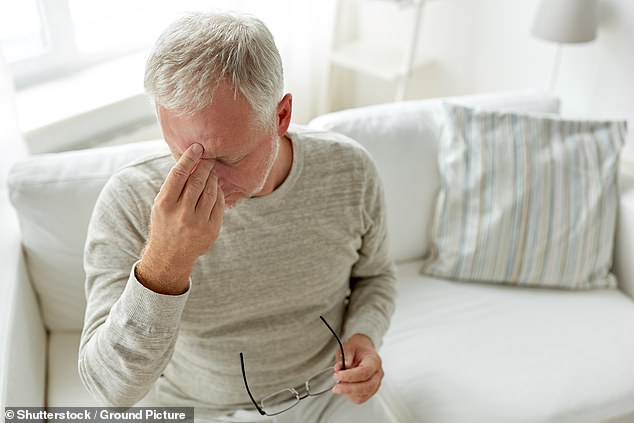Medics should suspect cancer in older men who complain of tiredness, a new study suggests.
It comes after a study found men in their 80s complaining of fatigue to their GP were twice as likely to have the disease, compared to those seeing their family doctor for another reason.
However, this increased risk wasn’t seen in women of the same age, experts found.
The findings were based on data from over 300,000 patients going to see their GP about tiredness compared to almost 425,000 seeking help for a non-fatigue issue who acted as a control group, between 2007 and 2017.
Researchers, which included experts from University College London, found men over the age of 80 complaining of fatigue had a 7 per cent chance of having cancer.
This compared to a just 3 per cent chance of men of a similar age seeing their GP for another issue.
The authors, who published their findings in the British Journal of General Practice, noted that current guidelines don’t recommend GPs consider cancer as a potential risk factor in men this age complaining of fatigue.
‘Age-specific findings support recommendations to prioritise cancer investigation in older men with fatigue but not in women,’ they wrote.

Medics should suspect cancer in older men who complain of tiredness, a new study suggests. Stock image
The authors suggested the increased risk of cancer in older men, but not women, could potentially be explained by men not seeking help for potential cancer symptoms as early their female counterparts who are more direct in seeking help.
However, they said further research was needed to replicate their findings in both non-British patients and post-Covid to see if patterns had changed.
Cancer risk has been long established as being closely tied to age as damage in cells, which can trigger the disease, builds-up over time.
Brits aged between 85-89 are the most likely to get cancer, according to data from Cancer Research UK.
Fatigue is considered one of the classic signs of cancer, though it can also be due to a range of other conditions.
Cancer can cause fatigue several ways, some of which are specific to certain types of cancers.
The most obvious way is the cancer itself, with the growing tumour draining the body of calories and nutrients to fuel its own growth depriving a person of energy,
Certain cancers, like that of breast and prostate, change the production of hormones in the body which can turn lead to fatigue.
Cancer can also cause the body to release substances caused cytokines in an attempt to boost the immune system, but which can trigger fatigue as a side effect.
Certain cancers also themselves release toxic chemicals that interfere with how the body processes substances that help our muscles work which, as a consequence, can make people feel tired.
Finally, some cancers, like that in the lung and some forms of stomach cancer can lead to breathlessness or fluid build-up respectively which can also lead to people to feel physically tired due to these problems.
People who keep feeling tired consistently are urged to contact their GP for advice.
While it’s unlikely to be due to cancer, the early the disease is spotted the easier it is to treat, so it’s important to get it checked.
Additionally, even if it isn’t cancer it means other potential causes such as stress, depression or a hormonal problem can be investigated.
This article was originally published by a www.dailymail.co.uk . Read the Original article here. .


